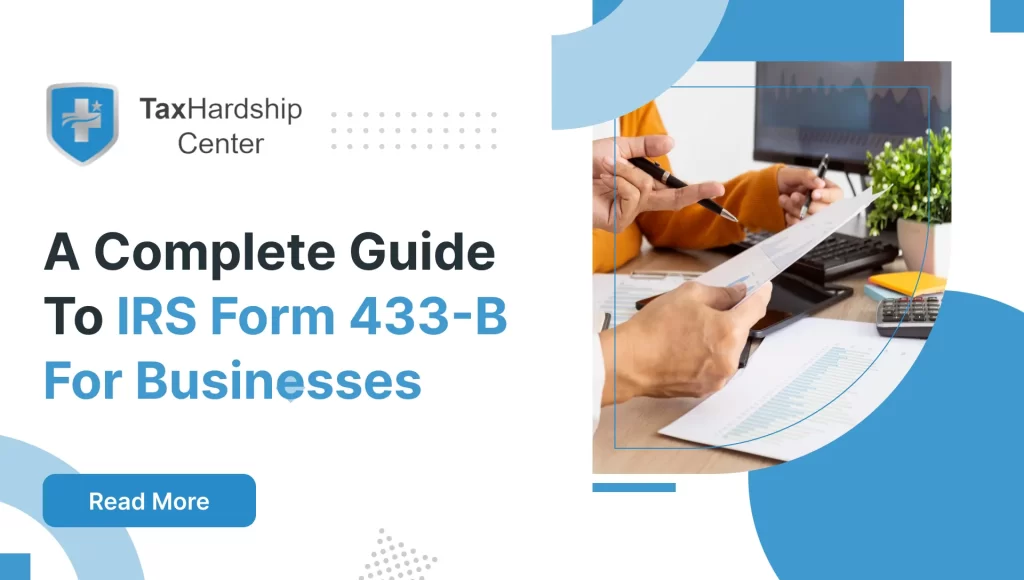Best tax relief services deliver practical solutions and peace of mind when tax debt looms. In this guide, we unpack what separates top firms from the rest, explore essential programs, and show why Tax Hardship Center earns its reputation. You’ll discover when to seek help, which questions to ask, warning signs to avoid, and real client wins.
What Makes a Tax Relief Service the Best?
Top-tier firms merge technical skill with clear communication and fair fees. They explain each stage in plain English, so you never face surprises. Their teams stay current on code changes and build custom strategies based on your unique finances. A high resolution rate and strong client reviews seal the deal.
Proven IRS Negotiation Experience
Seasoned negotiators know which IRS forms carry weight and which arguments sway officers. They draft persuasive offers, reference the latest IRS guidelines and anticipate follow-up questions. This expertise often turns a seven-figure debt into a manageable settlement. When success rates exceed 90 percent, you know you’re in good hands.
Licensed Professionals on Staff
Enrolled agents, CPAs and tax attorneys each bring distinct credentials that the IRS respects. Ongoing licensing requirements force continuous education, keeping teams sharp on new tax law updates. That background matters when the IRS scrutinizes your case. A qualified pro on your side means faster review and fewer hold-ups.
Clear, Fair and Upfront Pricing
No one likes hidden fees. Leading services publish flat-rate engagement fees covering preparation, filing and advocacy. You see the total cost before signing. This transparency builds trust and prevents sticker shock. Beware of vague hourly rates and hefty retainers that leave you guessing about the final bill.
Customized Plans for Each Taxpayer
Cookie-cutter solutions fail under IRS scrutiny. Top services conduct a full financial assessment, reviewing income, assets, living expenses and future earning potential, to craft a tailored offer. Whether it’s a lump-sum settlement or a low-monthly payment plan, customization boosts IRS approval chances and ensures payments fit your budget.
High Resolution Rate and Client Retention
Repeat clients and referrals speak volumes about a firm’s service quality. Look for published data on resolution rates and client satisfaction scores. Case studies often highlight successful outcomes, from penalty abatements to wage-garnishment releases. A high retention rate means you’ll get consistent support from a team that knows you.
Key Services Offered by Top Tax Relief Companies
Tax relief spans a range of IRS programs and advocacy services. A full-service provider guides you through each option and helps you choose the path that best fits your situation.
Offer in Compromise (OIC)
An Offer in Compromise lets qualifying taxpayers settle debt for less than the full amount owed. Applicants submit detailed financial disclosures, supporting documentation and a rationale for why paying the full debt is not feasible. Experienced pros file the paperwork properly, follow up with persuasive arguments, and manage IRS correspondence on your behalf. Learn more or begin your application on our Offer in Compromise service page.
Installment Agreements
Installment agreements allow taxpayers to pay off debt in monthly installments. The IRS offers streamlined plans for balances under $50,000 and partial-payment agreements for larger sums. A relief firm secures the lowest possible setup fees and negotiates terms to avoid liens. You can set up a plan directly via our Installment Agreement service page or learn more through the IRS Online Payment Agreement portal.
Wage Garnishment and Levy Releases
When the IRS issues a levy, your wages or bank accounts can freeze within days, cutting off your cash flow. Skilled advocates prepare and file the necessary appeals and levy-release requests to restore access to funds quickly. Effective intervention often stops garnishments in under ten days, safeguarding your income and financial stability.
Penalty Abatement Requests
Penalties slip into your balance for late filing or payment, sometimes amounting to more than the original tax owed. First-time penalty abatement and reasonable-cause relief programs erase fees tied to missed deadlines or uncontrollable events. Specialists cite precise IRS criteria—such as serious illness or natural disasters—to secure forgiveness, eliminating unnecessary charges. Dive deeper into these tactics in our penalty abatement strategies post.
Innocent Spouse Relief
Joint filers can escape shared liability when one spouse conceals income or underreports tax. Innocent spouse relief demands thorough documentation of the nonfiling spouse’s ignorance and cooperation. Our experts gather affidavits, tax transcripts and proof of expenses to build a compelling case. Approval can wipe out years of joint debt and protect your personal assets.
Back Tax Filings and Amendments
Unfiled returns block most relief programs and trigger ongoing penalties. Full-service teams prepare and file all missing returns, then negotiate penalty rollbacks to reduce your total balance. Amendments correct prior mistakes that inflate penalties and interest. Clearing your filing backlog restores eligibility for OIC and installment agreements. To understand how long the IRS can pursue old debts, check our blog on how long the IRS can collect back taxes.
IRS Appeals and Representation
If the IRS rejects your initial relief application, you may appeal the decision through the Independent Office of Appeals. Appeals officers review cases with fresh eyes and can overturn prior denials. Our representatives draft persuasive briefs citing tax code precedents and IRS directives. Successful appeals often resolve issues without going to tax court, saving time and legal costs.
Why Tax Hardship Center Stands Out
Tax Hardship Center offers an all-inclusive approach blending legal expertise, personalized service and transparent pricing. We guide you from initial evaluation through final IRS sign-off.
Experienced Tax Attorneys and Enrolled Agents
Our team includes former IRS officers, licensed tax attorneys and enrolled agents who specialize in collection defense. Their combined experience means you get legal insight and insider knowledge. We stay ahead of legislative changes to ensure every strategy meets current IRS policies and maximizes your relief options.
Personalized IRS Resolution Strategy
No two cases match exactly, and neither should your plan. We review your complete financial picture—from current earnings to projected expenses—to recommend either our Offer in Compromise or a manageable installment plan. This tailored approach improves approval odds and fits your cash flow requirements.
Transparent Pricing, No Surprise Fees
Our flat-fee model covers evaluation, form preparation, IRS filing and representation. We list every charge in the engagement letter so you know the total cost up front. No hidden add-ons, no ambiguous hourly billing—just clear terms that match your case’s complexity.
Real Clients, Real Results
We resolve more than 90 percent of cases and collect glowing testimonials. Recent wins include stopping wage garnishments within ten days and securing full penalty abatements for first-time filers. Our case studies showcase tangible outcomes and the peace of mind clients gain.
Trusted by Small Business Owners and Individuals Alike
From sole proprietors to families with multi-year unfiled returns, our clients appreciate our responsiveness and decisive action. We stay by your side until the IRS confirms your case is closed, ensuring no loose ends remain and no future enforcement surprises.
When Should You Seek Tax Relief Services?
Timing your outreach matters as much as choosing the right firm. Early action preserves options and prevents costly enforcement.
You Owe More Than $10,000 to the IRS
Large balances often trigger automatic enforcement steps, including liens, levies and wage garnishments. Seeking relief before these actions start gives your advocate room to negotiate penalty abatements and payment plans that fit your budget.
You’ve Received IRS Collection Notices
A notice demanding immediate payment sets a firm deadline. Missing that deadline leads to liens and levies without further warning. Professional representation can stop collection letters and respond on your behalf before the situation escalates.
Your Wages or Bank Accounts Are at Risk
Levies can seize assets within weeks of a notice, freezing your checking account or garnishing your paycheck. A qualified team files timely appeals and emergency levy-release requests, restoring access to funds and protecting you from financial hardship.
You’re Facing Penalties or Interest Growth
Penalties and interest accumulate daily on unpaid balances, inflating the total you owe. Expert relief stops new penalties, negotiates interest reductions and applies for reasonable-cause relief. Tackling fees early prevents runaway debt growth and reduces overall payments.
You’re Buried Under Unfiled Returns
The IRS bars relief programs if you have unfiled returns in the previous two years. Filing back returns restores eligibility for OICs and installment agreements. Specialists handle everything—from securing missing W-2s to negotiating penalty rollbacks—so you meet IRS requirements without extra stress.
Questions to Ask Before Choosing a Tax Relief Firm
Asking the right questions reveals a firm’s true value and ethics.
Are Services Handled In-House or Outsourced?
Outsourced work often leads to miscommunication, delays and inconsistent quality. In-house teams ensure accountability and expertise from credentialed professionals who understand your case inside and out.
How Often Will I Receive Updates?
A lack of communication breeds anxiety. Top firms schedule regular check-ins—weekly or biweekly—so you know exactly where your case stands. Ask for preferred methods, whether phone calls, emails or secure client portals.
What’s the Timeline for My Case?
Resolution time varies by program and IRS workload. A reliable firm provides a written timeline that accounts for form processing, potential follow-up and appeal windows. Avoid vague promises that can lead to frustration.
What Happens If the IRS Rejects My Proposal?
Ensure your firm offers an appeals process at no extra charge. If your initial request is denied, you need a clear second-step strategy rather than a pitch for additional fees.
Is There a Money-Back Guarantee?
Firms confident in their methods may offer partial or full refunds if they fail to secure relief. Understand conditions and exceptions clearly before signing on.
Red Flags to Avoid When Hiring Help
Spot and avoid scams before they cost you time and money.
Vague Promises or Guarantees
Any firm promising a specific reduction percentage before reviewing your details raises red flags. No one can guarantee precise outcomes without a thorough assessment.
Demanding High Upfront Fees
Excessive retainers can indicate a firm that prioritizes cash collection over client success. Reasonable deposits align with the complexity and volume of work involved in your case.
No Written Agreement or Scope of Work
Never proceed without a detailed engagement letter outlining services, fees and timelines. Verbal commitments vanish in disputes and leave you unprotected.
Unlicensed Staff Handling Complex Filings
Only CPAs, enrolled agents or attorneys should prepare and file your case. Confirm credentials before sharing personal information or payments.
Step-by-Step Breakdown of the Relief Process
Knowing each phase eases stress and sets clear expectations.
Step 1: Initial Free Consultation
A licensed professional reviews your IRS notices, tax returns and financial records. This comprehensive assessment identifies the most promising relief paths and expected outcomes.
Step 2: IRS Compliance Check
We confirm that all required returns are filed and payments are current to qualify for relief programs. Missing returns or unpaid balances can block Offers in Compromise and installment agreements.
Step 3: Document Collection and Case Preparation
Gathering documentation—bank statements, pay stubs, asset records and proof of expenses—builds the foundation for persuasive proposals. Our team handles requests from banks and employers to secure necessary paperwork.
Step 4: Submission of Resolution Strategy
We file the appropriate forms: Form 433-A or Form 433-B for financial disclosure, OIC application or installment agreement request. Each submission follows IRS formatting and review guidelines to minimize processing delays.
Step 5: Ongoing Communication and Final Closure
We monitor IRS responses, answer follow-up questions and address any requests for additional documentation. Once the relief option is approved, we confirm final terms in writing and guide you through compliance steps.
Benefits of Professional Tax Relief Over DIY Approaches
Employing experts saves time, money and headaches.
Expert Negotiation with IRS Agents
Professionals speak IRS terminology, anticipate objections and preempt requests for further documentation. Their expertise often secures faster approvals and better settlement terms than you could achieve alone.
Avoiding Delays from Incomplete Filings
Incomplete or incorrect paperwork can stall your case indefinitely. Specialists use rigorous checklists and review protocols to ensure every detail meets IRS standards before submission.
Long-Term Planning Beyond Debt Resolution
We don’t just settle current debt; we help you build quarterly payment habits, file timely returns and maintain compliance for years to come. That proactive stance prevents future crises and restores financial stability.
Peace of Mind and Reduced Stress
Handing off complex IRS matters to a dedicated team lets you focus on daily life and long-term goals. You gain confidence knowing experts manage your case from start to finish.
Staying IRS-Compliant After Settling Your Debt
Proper follow-through prevents relapses into debt.
Keep Up With Quarterly Tax Payments
Calculate and pay estimated taxes on time to avoid underpayment penalties. We can set reminders or enroll you in auto-payment plans to keep you on track.
File on Time, Every Time
Missing a deadline jeopardizes all gains. Use calendar alerts or automated e-filing services to meet every filing deadline without fail.
Monitor IRS Communication Regularly
Watch for letters or portal messages and respond within specified windows. Even small oversights can jeopardize settlement agreements.
Hire Ongoing Support if Needed
Annual or quarterly check-ins with a tax professional catch potential issues early. Ongoing support ensures you stay compliant as tax laws evolve.
Final Checklist to Choose the Right Service
Use this quick guide before you sign on the dotted line.
Verify Credentials and Licensing
Confirm your representative is a licensed CPA, enrolled agent or attorney in good standing with the IRS.
Understand the Entire Process
Request a written, step-by-step outline detailing each phase and expected timeline for your case.
Review Past Client Feedback
Seek out case studies, testimonials and third-party reviews on reputable sites. Authentic reviews reveal real service quality.
Confirm Service Scope and Pricing
Ensure every service—form preparation, filing, representation—is listed in an engagement letter along with total fees and payment terms.
Reclaim your financial future with expert support that prioritizes results over rhetoric. For personalized guidance, visit our Contact Us page to schedule a free consultation.
FAQs
What criteria should I use to choose a tax relief service?
Evaluate a firm’s resolution rate, licensing credentials and pricing transparency. Look for published success metrics and client testimonials. Ensure they handle work in-house and offer clear timelines.
How much does a typical tax relief service cost?
Costs vary by case complexity and relief program. Flat-fee models often range from $1,500 to $5,000, covering evaluation, form preparation and IRS representation. Always confirm fees in writing before engaging.
Can I qualify for an Offer in Compromise?
Qualification depends on your financial situation, including income, assets and allowable expenses. The IRS considers your ability to pay and collection potential. A professional evaluation helps determine eligibility.
How long does it take to resolve tax debt with a relief service?
Resolution times vary. Streamlined installment agreements can finalize in four to six weeks. Offers in Compromise and penalty abatements often take three to six months, depending on IRS workload and documentation completeness.
Will using a tax relief service harm my credit score?
Tax relief itself doesn’t directly affect credit reports. However, the underlying debt, liens or levies may already impact your score. Securing relief can stop new liens and levies, preventing further damage.







